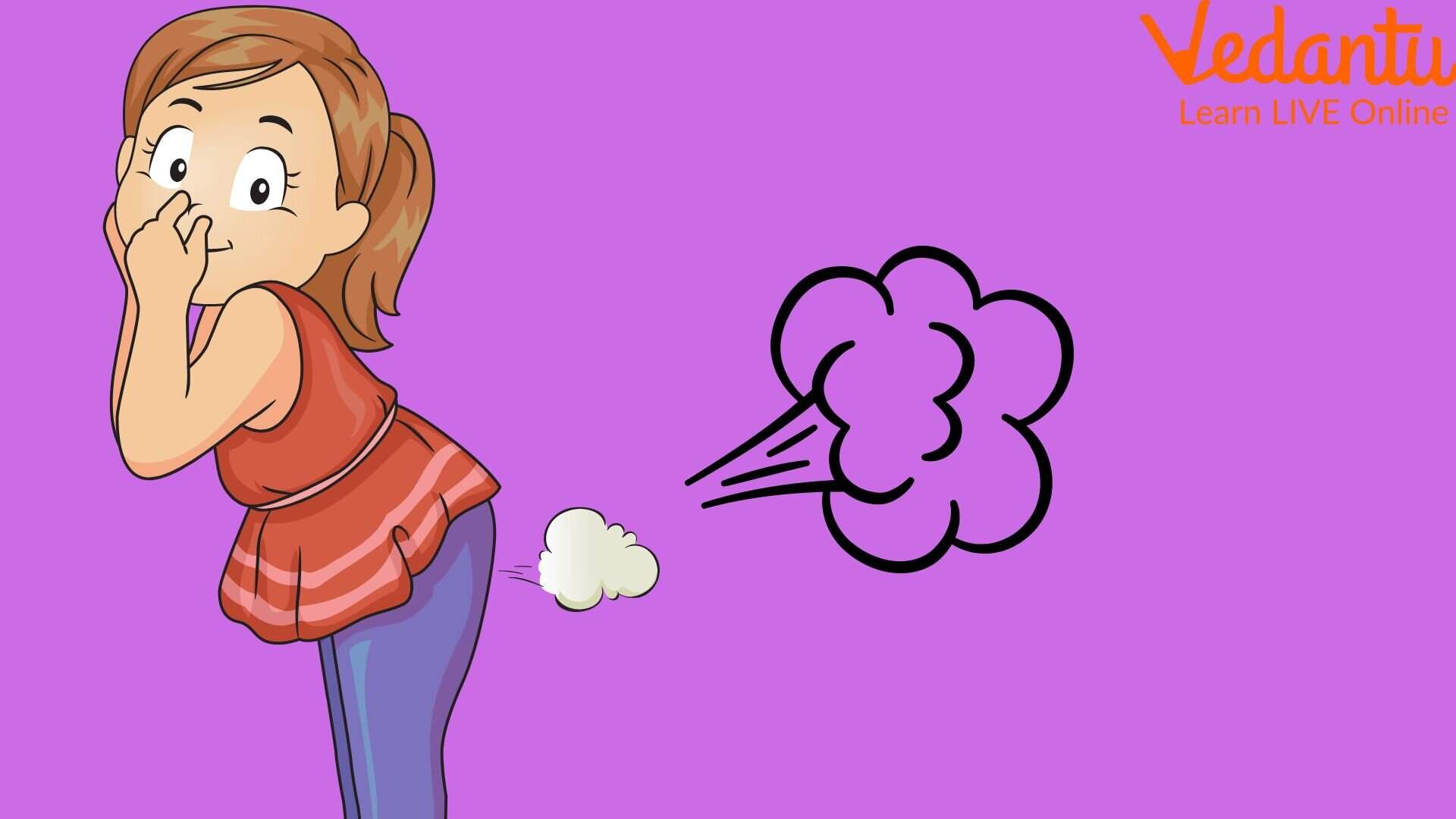The Science Behind Farting - Explained!
Farting is considered to be somewhat of a social taboo. Doing it means we are not well. In fact, people think that farting is an obnoxious habit even though it is a natural physiological phenomenon. In this blog, we will study why we fart and how it is produced in our digestive system.
We will also learn various fascinating facts about farting along with scientific reasons. These facts will explain that it sometimes is not in the hands of a person. In fact, we all fart and it has been scientifically proven. Nobody can deny this fact!
What is a Fart?
A fart, also called flatus or flatulence, is a normal physiological condition where gases evolving in the digestive canal are expelled through the anus. A fart can be odourless or stink considering the type of food consumed and the bacterial actions on them.
Gases can form in the digestive tract such as in the stomach, small intestine and large intestine. It means that the action of enzymes and bacteria on our food results in the formation of different gases. It has also been found that we engulf gases during the swallowing of food. These gases accumulate and pass through our anus in the form of farting.

What is The Reason Behind Farting?
Reasons Behind Farting
As per the fart meaning, we can clearly understand that the gases formed inside our digestive canal are released in the form of fart. Here is a list of reasons that tells us how farts form scientifically.
1. Swallowed Air
We consume food and masticate in our mouth. During this process, we tend to engulf a good amount of atmospheric gases such as nitrogen, oxygen, and carbon dioxide. It happens throughout the day. In fact, we also consume carbonated beverages and tend to accumulate gases in our stomachs primarily.
2. Digestion of Carbohydrates
Natural carbohydrates often get improperly digested. It results in the formation of hydrogen and carbon dioxide in our digestive system. These gases are then expelled from the large intestine through our anus.
3. Bacterial Overgrowth
We have a huge colony of friendly bacterial growing inside our gut. When there is an overgrowth of such bacterial species, we find the formation of gases a little higher than normal. This is also a reason behind the excess formation of gases resulting in flatulence.
Types of Fart
1. Flatulence with Abdominal Pain, Cramp and Bloating
When gases get trapped in the intestinal region, they bloat our abdominal cavity resulting in cramps.
2. Excess Flatus
When a person is producing excessive gas due to a condition such as irritable bowel syndrome, dyspepsia, and anal irritation, it is called excess flatulence.
3. Smelly Flatus
Obnoxious or smelly farts happen when the gut bacteria have overgrown inside our digestive tract. They produce methane, hydrogen sulphide and other pungent smelling gases resulting in an irritating smell.
4. Flatus Incontinence
This is a kind of feeling when the rectum feels full but the person cannot identify whether it is due to stool or gas.
Fun Facts Related to Farts
An average person can produce fart gases up to 1.8 litres every day. The common gases are oxygen, hydrogen, carbon dioxide, and methane. The fart gas name that causes smells is hydrogen sulphide.
Methane is a prime cause of global warming. Livestock rearing causes 36% of methane pollution. It means that cow farts are one of the prime reasons behind global warming.
An individual can fart up to 25 times a day and it is natural.
Now that you know the answer to fart contains which gas, you will be surprised to know that only 1% of them cause odour in farting. The rest are odourless. The odourless gases are oxygen, hydrogen, carbon dioxide, and methane and they comprise 99% of each fart.
A scientific fact suggests that people pass more gases when they are asleep. It means the major part of the farts of body passes during sleeping when our muscles are relaxing.
The name ‘fart’ comes from a vintage English word named ‘feortan’. The meaning of this word is ‘to break wind’.
As per a survey done by sociologists, heterosexual men think farting is funny in front of their partners. On the other hand, heterosexual women consider it embarrassing.
What Foods Make You Fart More?
Here is a list of foods that make you fart more.
Fatty food preparations that contain beef and pork
Lentils and beans can cause more farting due to the presence of more fibre.
Eggs can be a reason as they contain sulphur-packed methionine. This compound can cause smelly farts in some people.
Onions, garlic, leeks and artichokes can cause farting as they all contain fructans, a species of carbohydrates that can cause gas formation and stomach bloating.
Dairy products can cause flatus among adults as 65% of the adult population is more or less intolerant to lactose.
Cabbage, cauliflower, and broccoli can also cause farting. The other vegetables such as kale and sprouts can take time to digest inside our body. The improper digestion of cellulose and other carbohydrates can cause farting.
Can We Stop Farting?
Now that we know the science of farting, we can clearly understand that it is not possible to stop farting. It is a natural process our digestive canal follows to get rid of the gases formed in the system. We can reduce the formation of gases by keeping our gut healthy by eating good food and maintaining proper habits.
Conclusion
This is all about the scientific reasons behind farting. We also know what kind of gas comes out of a fart. The scientific explanation tells us that our food needs to be properly digested. For this, we need to eat healthily and do physical exercise. Active people can digest carbohydrates better. In a nutshell, farting is common and scientific. It is not a social taboo.







